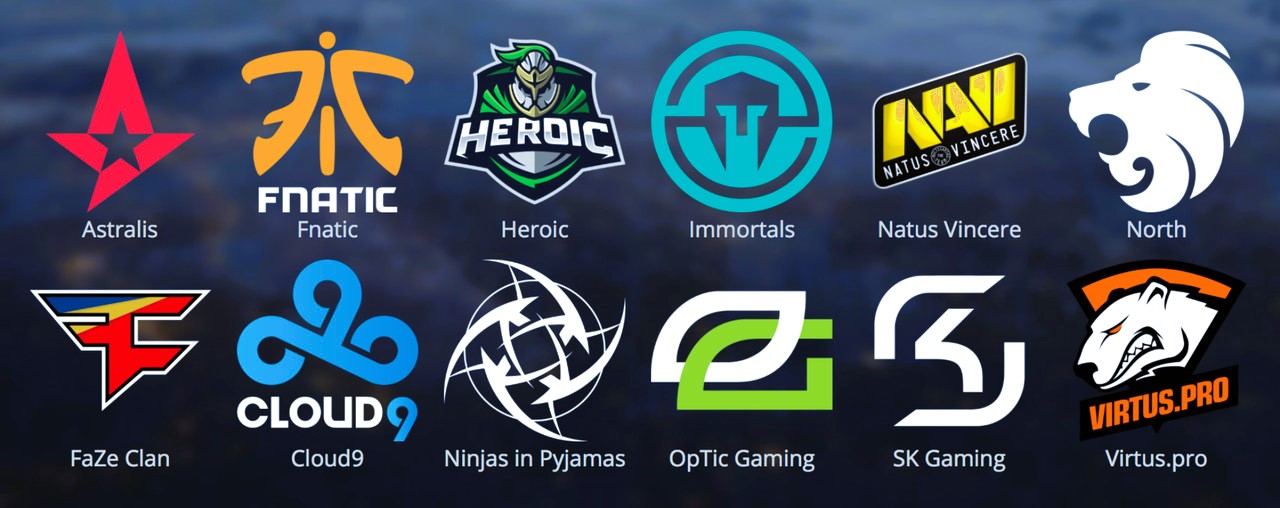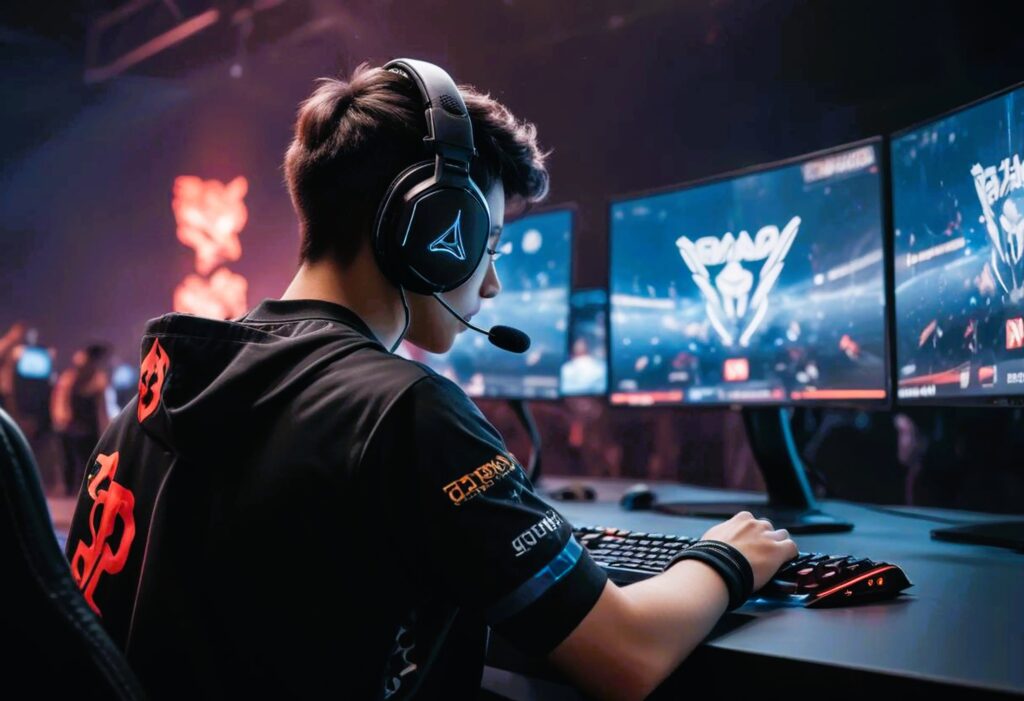A Deep Dive into the World of Esports: Teams, Tournaments, and Strategies

Esports, or electronic sports, has rapidly evolved from a niche hobby to a multi-billion dollar global phenomenon. What was once seen as mere entertainment is now recognized as a legitimate form of competition, drawing millions of viewers and creating lucrative opportunities for players, teams, and sponsors. In this article, we will explore the fascinating world of esports, examining the teams, tournaments, and strategies that define this exciting industry.
The Rise of Esports
Esports began to gain traction in the late 20th century, with early tournaments for games like Doom and StarCraft. However, it wasn’t until the early 2000s that esports began to take off in earnest. The introduction of platforms like Twitch revolutionized the way players and fans interact, allowing gamers to stream their gameplay and connect with audiences worldwide. The accessibility of high-speed internet and the proliferation of online gaming further accelerated the growth of esports.
Today, esports encompasses a wide range of genres, including first-person shooters (FPS), multiplayer online battle arenas (MOBAs), real-time strategy (RTS), and sports simulation games. Popular titles like League of Legends, Dota 2, Counter-Strike: Global Offensive, and Overwatch have established themselves as major players in the esports arena, attracting large followings and generating significant revenue through sponsorships, merchandise sales, and ticket sales for live events.
Esports Teams

At the heart of esports are the teams that compete in various tournaments. These teams are often made up of highly skilled players who specialize in specific games and roles within those games. For example, in League of Legends, a team typically consists of five players, each filling distinct roles such as top laner, mid laner, jungler, AD carry, and support.
Famous Esports Teams
Some of the most renowned esports teams include:
- Team Liquid: Founded in 2000, Team Liquid has a diverse roster competing in various titles, including Dota 2, CS, and Valorant. They are known for their strategic gameplay and strong team synergy.
- Fnatic: This UK-based organization is one of the oldest and most successful esports teams, with championships across multiple games, including League of Legends and CS.
- Cloud9: Based in North America, Cloud9 has achieved success in several titles, including League of Legends and Valorant. Their commitment to developing young talent has earned them a loyal fanbase.
- SK Telecom T1: This South Korean team is famous for its dominance in League of Legends, boasting multiple World Championship titles and a roster featuring one of the best players in history, Faker.
- G2 Esports: A European powerhouse, G2 has made a name for itself across various games, including League of Legends and CS, known for their flashy plays and entertaining style.
Team Structure and Management
Esports teams often operate similarly to traditional sports franchises, with management, coaches, analysts, and support staff working alongside players to develop strategies and improve performance. Successful teams invest heavily in scouting talent, training facilities, and coaching staff, creating an environment conducive to success. Like this article? Read also about Games and Mental Health.
Major Esports Tournaments
Esports tournaments attract millions of viewers and feature substantial prize pools, often reaching millions of dollars. Some of the most notable tournaments include:
The International (TI)
Hosted annually by Valve Corporation, The International is the premier tournament for Dota 2. The event features the best teams from around the world competing for a multi-million dollar prize pool, largely funded by the community through the sale of in-game items.
League of Legends World Championship
The World Championship is the culmination of the League of Legends competitive season, featuring top teams from various regions battling for the Summoner’s Cup and a substantial cash prize. The event garners millions of viewers, making it one of the most-watched esports tournaments globally.
ESL One
ESL One is a series of premier esports tournaments held for various games, including CSand Dota 2. These tournaments are known for their high production value and attract top teams from around the world.
Overwatch League (OWL)
The OWL is a professional league for Overwatch, featuring city-based teams competing in a structured regular season and playoffs. The league has attracted significant investment and sponsorship, positioning it as a major player in the esports landscape.
Fortnite World Cup
Epic Games launched the Fortnite World Cup, which quickly became one of the most lucrative events in esports history. The tournament features players competing in solos and duos for a massive prize pool, demonstrating the popularity of battle royale games in the competitive gaming scene.
Strategies for Success in Esports

Success in esports requires more than just individual skill; it necessitates strategic planning, teamwork, and adaptability. Here are some key strategies that successful teams employ:
1. Communication and Teamwork
Effective communication is crucial for success in team-based games. Players must be able to share information, coordinate strategies, and react quickly to changing situations. Many teams use voice communication tools and practice regularly to enhance their synergy.
2. Meta Awareness
Understanding the current game meta—what strategies, champions, or characters are most effective—can significantly impact a team’s performance. Successful teams adapt to changes in the meta, often experimenting with new strategies and compositions to gain a competitive edge.
3. Analyzing Opponents
Studying opponents’ gameplay and strategies is essential for preparation. Teams often review replays, analyze statistics, and scout opponents in advance to develop counter-strategies.
4. Mental Resilience
Esports can be mentally taxing, and players must develop resilience to handle pressure during high-stakes matches. Teams often work with sports psychologists to build mental toughness and coping strategies for dealing with stress and adversity.
5. Continuous Improvement
The best teams prioritize continuous improvement, constantly seeking feedback, analyzing performance, and setting goals for individual and team growth. Regular practice sessions and scrims (practice matches) are crucial for refining skills and strategies.
The Future of Esports
As esports continues to grow, its impact on the gaming industry and broader culture is undeniable. We can expect to see increased investment from traditional sports organizations, the establishment of more collegiate esports programs, and further integration into mainstream media. Additionally, advancements in technology, such as virtual reality and augmented reality, may shape the future of esports in exciting ways.
Conclusion
Esports has transformed the way we view competitive gaming, bringing together players, teams, and fans in a vibrant and dynamic community. With the continued growth of tournaments, teams, and innovative strategies, the world of esports promises to captivate audiences for years to come. Whether you’re a player, a fan, or simply curious about this phenomenon, the esports landscape is one worth exploring.
For more in-depth information about esports, visit Wikipedia or check out sites like IGN and Fandom.



